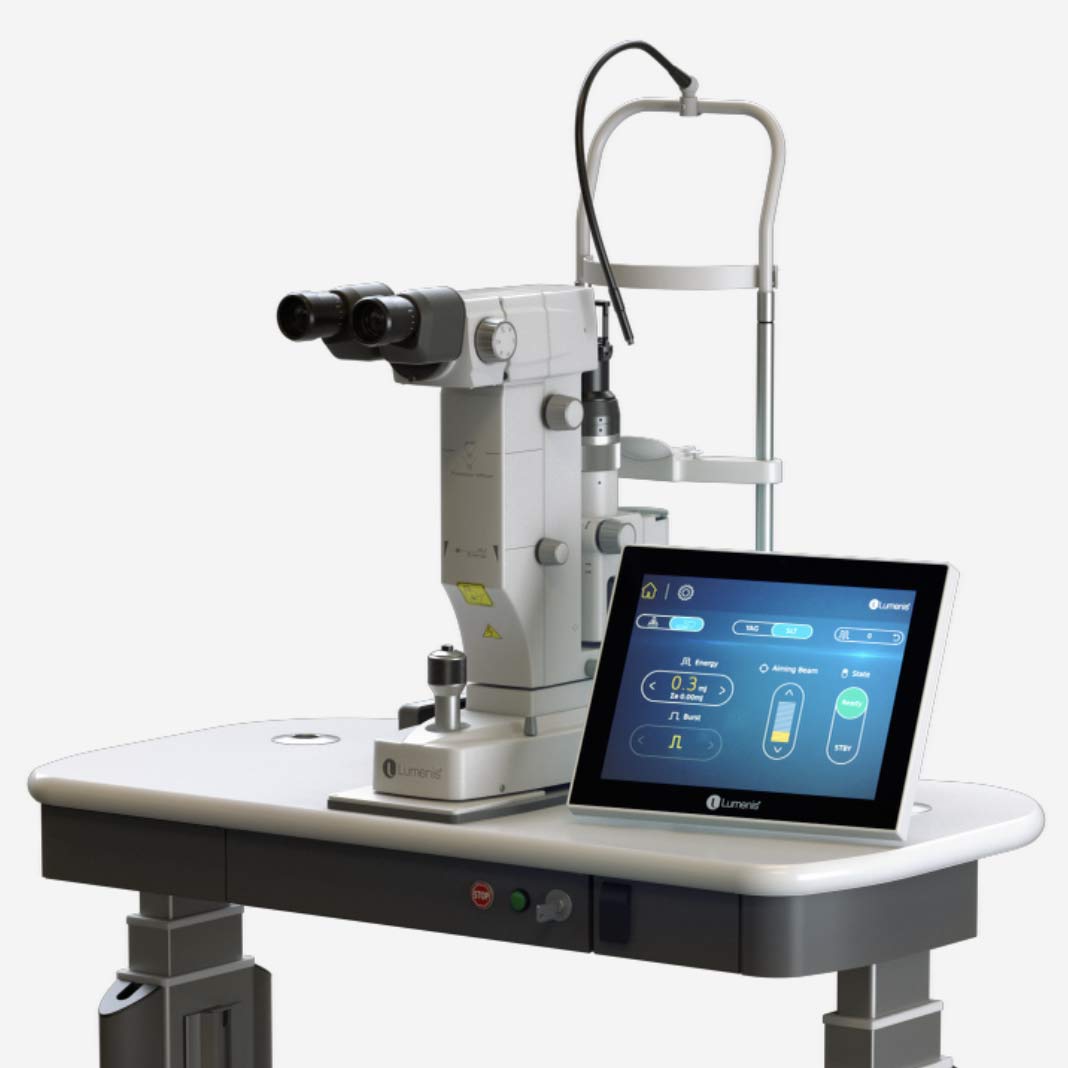Cataract Diagnosis
& Co-management

Cataract Diagnosis
& Co-management
Cataracts affect many people as they age. At Southern Eye Centers in Baton Rouge, LA and Plaquemine, LA, our eye doctors diagnose cataracts and monitor their progression. When cataract surgery becomes necessary, we refer patients to a trusted ophthalmologist and provide patients with pre- and post-operative care.
What are cataracts?
When proteins in the eye break down and form clumps on the clear lens, a cloudy region known as a cataract develops. This condition obstructs the passage of light through the eye, causing vision to become hazy. As the cataract progresses, more of the lens becomes cloudy, exacerbating the condition. Although cataracts are commonly associated with aging, they can also result from injury or certain medical conditions such as diabetes in younger people.
Risk factors for cataracts
Age is the greatest risk factor for cataracts. Once a person reaches the age of 60 or older, their risk for developing cataracts increases significantly. If you are over 55, expect your doctor to require a dilated eye exam to test for cataracts.
Other risk factors include:
- A family history of cataracts
- Certain medical conditions like diabetes and glaucoma
- Smoking
- Previous eye injury or surgery
- Certain medications such as steroids
- Poor diet with nutritional deficiencies including a lack of antioxidants
- Prolonged exposure to UV rays without proper eye protection
Symptoms of cataracts
The formation of cataracts is typically a slow process that occurs over several years. Signs of this condition include blurred vision, light sensitivity, trouble seeing at night, halos around lights, reduced color intensity, and frequent changes in eyeglass prescription. Reading small print on menus or other materials may also become challenging for individuals with cataracts. If any of these symptoms are experienced, it’s crucial to schedule a comprehensive eye exam promptly to avoid significant vision loss.
Diagnosing cataracts
At Southern Eye Centers in Baton Rouge, LA, or Plaquemine, LA, your eye doctor can diagnose cataracts and a range of other eye diseases during a comprehensive eye exam. Your optometrist will perform a series of tests to assess your overall eye health, including a slit lamp exam which uses a low-power microscope to check for cataract formation and other signs of diseases. Your doctor may also measure the pressure within each eye and test your color vision and sensitivity to glare and light.
Treatment for cataracts
Treatment for cataracts will depend on the level of visual impairment they cause. If cataracts have minimal to no effect on your vision, no treatment may be needed. Your doctor may advise you to monitor for increased symptoms and recommend regular comprehensive eye exams to see if your condition worsens. In some cases, adjusting your eyeglass prescription may improve your vision temporarily.
Immediate surgery is not necessary. The decision to have surgery depends on how your vision affects your safety and the safety of others, your independence, and your ability to read computer screens, books, or watch television.
If your cataracts affect your vision enough that it is hard to do everyday tasks, surgery is the only viable option. Your eye doctor will work with you to determine your readiness for surgery and recommend a trusted ophthalmologist.
Cataract surgery
Cataract surgery is a common procedure performed to remove a cloudy lens and replace it with an artificial lens, also known as an intraocular lens (IOL).
Prior to surgery, the eye is numbed with local anesthesia, and the patient is given medication to help them relax. The surgeon then makes a small incision in the eye, through which a tiny probe is inserted to break up the cloudy lens into small pieces. These fragments are removed using suction, and the IOL is inserted through the same incision.
After the procedure, the patient may experience some discomfort or itching in the eye, but this typically subsides within a few days. It is important to follow the post-operative instructions provided by the surgeon to ensure proper healing and minimize the risk of infection. In most cases, patients can resume normal activities, including driving and working, within a few days to a week after surgery.
Cataract surgery is considered a safe and effective procedure, with a high success rate in improving vision. The eye doctors at Southern Eye Center will handle your pre- and post-operative care.

After cataract surgery
Cataract surgery is an amazing procedure that can restore your vision and allow you to see the world in a whole new way. However, some patients may experience cloudy vision again months or years after their cataract surgery. YAG laser capsulotomy is a type of laser surgery used to remove the hazy capsule that forms on the back of the lens implant after cataract surgery.
At our Plaquemine location, we use Digital Duet technology to perform this procedure, ensuring that our patients receive the best possible care. YAG laser capsulotomy is a safe and minimally invasive surgery, typically taking only a few minutes to complete. There is no need for anesthesia, incisions, or stitches.
Cataract prevention
While there is no guaranteed way to prevent cataracts, there are steps you can take to reduce your risk. These include wearing sunglasses with UV protection when outside, eating a diet rich in antioxidants, quitting smoking if applicable, and getting regular exercise. You can also lower your risk by managing any preexisting conditions like diabetes and using protective eyewear when engaging in sports or other potentially dangerous activities.
The best form of prevention is to schedule regular comprehensive eye exams with a qualified optometrist. Our eye care experts are experienced in diagnosing cataracts and providing pre- and post-operative care for cataract surgery. If you are concerned about cataracts, call us today to schedule your comprehensive eye exam at our office in Baton Rouge, LA or Plaquemine, LA.
